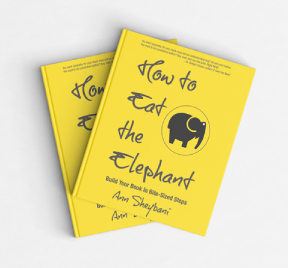Writing
The Arrogance of Belonging
March 5, 2018
I caught sight of myself on video last week during a group coaching session. There were about 10 other entrepreneurs on the call as well, their faces appearing whenever they spoke or made noise. Of course, I didn’t really pay attention to them, so fixated was I on my own image being the complete narcissist that I am. And, man-o-live, was I mortified by what I saw—a stricken gargoyle at full attention who never ONCE opened her mouth over the course of two hours.
Now, I’m used to conducting mastermind calls, or writing classes, or webinars. I’m used to being the leader, the one answering all of the questions. I am not, however, particularly good at being a participant, the one asking the questions, putting herself out there as the student; the one that could use some help. In fact, I’m dreadful.
I like to think that I’m the sort of person who needs time to get the lay of the land before I go shooting my mouth off. I hate talking just to hear the sound of my own voice; I don’t want to be that know-it-all desperate to position him or herself at everyone else’s expense; or that pain in the ass who simply asks questions for the sake of asking questions, never intending to do a thing with the information. But, really, my holding back, playing it cool, is just a symptom of self-doubt. I’m not willing to risk looking like a Rookie, even when I’ve paid good money so I can learn something new. My ego and safety are BFF’s.
Anyway, I’d picked up Elizabeth Gilbert’s Big Magic the last time I was in the States. This weekend, thanks to the fact that our flight to Switzerland was cancelled in a freak Irish snowstorm, I had the time to put my feet up and read.
I landed on a chapter called Entitlement, which is what I needed most, what the story I just told you is really about. I’m going to pull a pretty big quote out of this chapter, so please don’t report me for copyright infringement.
The poet David Whyte calls this sense of creative entitlement “the arrogance of belonging,” and claims that it is an absolutely vital privilege to cultivate if you wish to interact more vividly with life. Without this arrogance of belonging, you will never be able to take any creative risks whatsoever. Without it, you will never push yourself out of the suffocating insulation of personal safety and into frontiers of the beautiful and the unexpected.
The arrogance of belonging is not about egotism or self-absorption. In a strange way, it’s the opposite; it is a divine force that will actually take you out of yourself and allow you to engage more fully with life. Because often what keeps you from creative living is your self-absorption (your self-doubt, your self-disgust, your self-judgment, your crushing sense of self-protection). The arrogance of belonging pulls you out of the darkest depths of self-hatred—not by saying “ I am the greatest!” but merely by saying “I am here!”
I believe that this good kind of arrogance—this simple entitlement to exist, and therefore to express yourself—is the only weapon with which to combat the nasty dialogue that may automatically arise within our head whenever you get an artistic impulse. You know the nasty dialogue I mean, right? I’m talking about the nasty dialogue that goes like this: “Who the hell do you think you are, trying to be creative? You suck, you’re stupid, you have no talent, and you serve no purpose. Get back in your hole.”
Anyway, I could go on and on, but really, I think you should buy the book.
I know that my clients, even the most stalwart among them, face similar fears, particularly when they first start a project, then again when they can see the finish line; when they realize that their work is ten seconds away from being launched into the world.
Everything in them wants to hang back, procrastinate, look earnest yet terribly busy– just like me on those group-coaching calls– because they’re afraid to reveal themselves for the schmendricks they fear themselves to be. Nothing like putting your stories, thoughts, and opinions in black and white to leave one feeling exposed.
Yet, I think Elizabeth Gilbert has a point. If we want to be creative, if we want to learn and grow, if we want to be part of the larger conversation, if we want to take a seat on the expert’s stage, if we want to impact others, first we’ve got to act like we belong. We’ve got to feel entitled. We’ve got to assume that we have something useful to offer others, or, at the very least, to offer ourselves. Otherwise we’ll simply retreat back into our dark, little hole. Watch a lot of Netflix.
I’m scared too. I get it. But I’ve decided I’m going to suit up and play full out on these calls because to do otherwise is ridonkulous. How about you?



